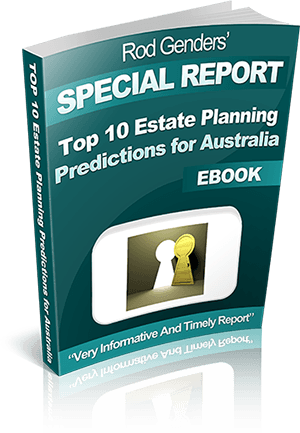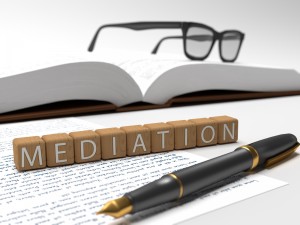Over the 20 years between 1994 and 2014, the proportion of the population aged 65 years and over increased from 11.8% to 14.7%. This group is projected to increase more rapidly over the next decade, as further cohorts of baby boomers turn 65.
In the 12 months to 30 June 2014, the number of people aged 65 years and over increased by 118,700 people, representing a 3.6% increase.
We are living longer and accumulating greater wealth. This gives rise to the potential for more disputes arising on either incapacity or death.
In Australia, mediation is a structured negotiation process in which an independent person, known as a mediator, assists the parties to identify and assess options and negotiate an agreement to resolve their dispute. Mediation is an alternative to a judge imposing a decision on the parties.
Mediation will be an important tool in resolving some of these disputes, including, but not limited to:
- challenges to the validity of a Will (e.g. preparation, execution or interpretation of a Will, capacity to make a Will and Will kits);
- elder abuse claims (including physical, psychological and financial claims, and civil and criminal remedies);
- Family Provision claims (where the deceased or incapable person is either the dependant or the provider);
- variation of trusts;
- long-term care issues (including consent to treatment and admission);
- power of attorney disputes (including capacity, and use and abuse issues);
- guardianship plans;
- access to health care issues; and
- housing issues (including tenancy issues, house-sharing arrangements and assisted living).
Mediation is well-suited to these types of estate disputes because it provides for the consideration of factors outside the adversarial litigation system. Very often in estate disputes there are multiple interests and motivations. Mediation provides a private forum to identify and respond to those interests and motivations.
When a dispute arises between family members, mediation allows for consideration of the surrounding factors that might contribute to the dispute or interfere with its resolution. For example, family dynamics, suspicion of abuse or undue influence, blended families with opposing views on testamentary entitlement, and interpretation of the testator’s, donor’s or settlor’s wishes can be more cost-effectively considered in the mediation context than during the course of litigation.
Where family is involved, litigation is generally the last resort. While the disputing parties want the opportunity to settle their disputes behind closed doors, they often need the assistance of a neutral third party to reach an appropriate resolution.
Mediation allows for the levelling of the playing field because each party has a voice and can participate in the process. Each party has the right to have counsel present and the ability to influence the discussion and eventual outcome. If there is a desire to repair relationships (or at least not irreparably damage them further), mediation provides an opportunity for this type of resolution.
Parties can more readily move from entrenched positions to a more holistic consideration of relevant issues. With a good mediator, the parties will discover that they have common interests that can be brought to bear in resolving the dispute.
If you or your family are headed for an estate dispute, your best and cheapest option is to consult an experienced lawyer who specialises in estate administration and estate planning as soon as possible. An early resolution before things get out of hand could save tens of thousands of dollars later on, as well as lots of stress and unpleasantness.
To claim Your FREE 15 minute Telephone Consultation call us on (08) 8212 7233 today!
SPECIAL REPORT “Top 10 Estate Planning Predictions for Australia”

Enjoy this article?
Check out the full report containing all 10 Estate Planning Predictions from senior Australian lawyer Rod Genders. Valuable insights to prepare for the future and help protect yourself, your family and your assets.








